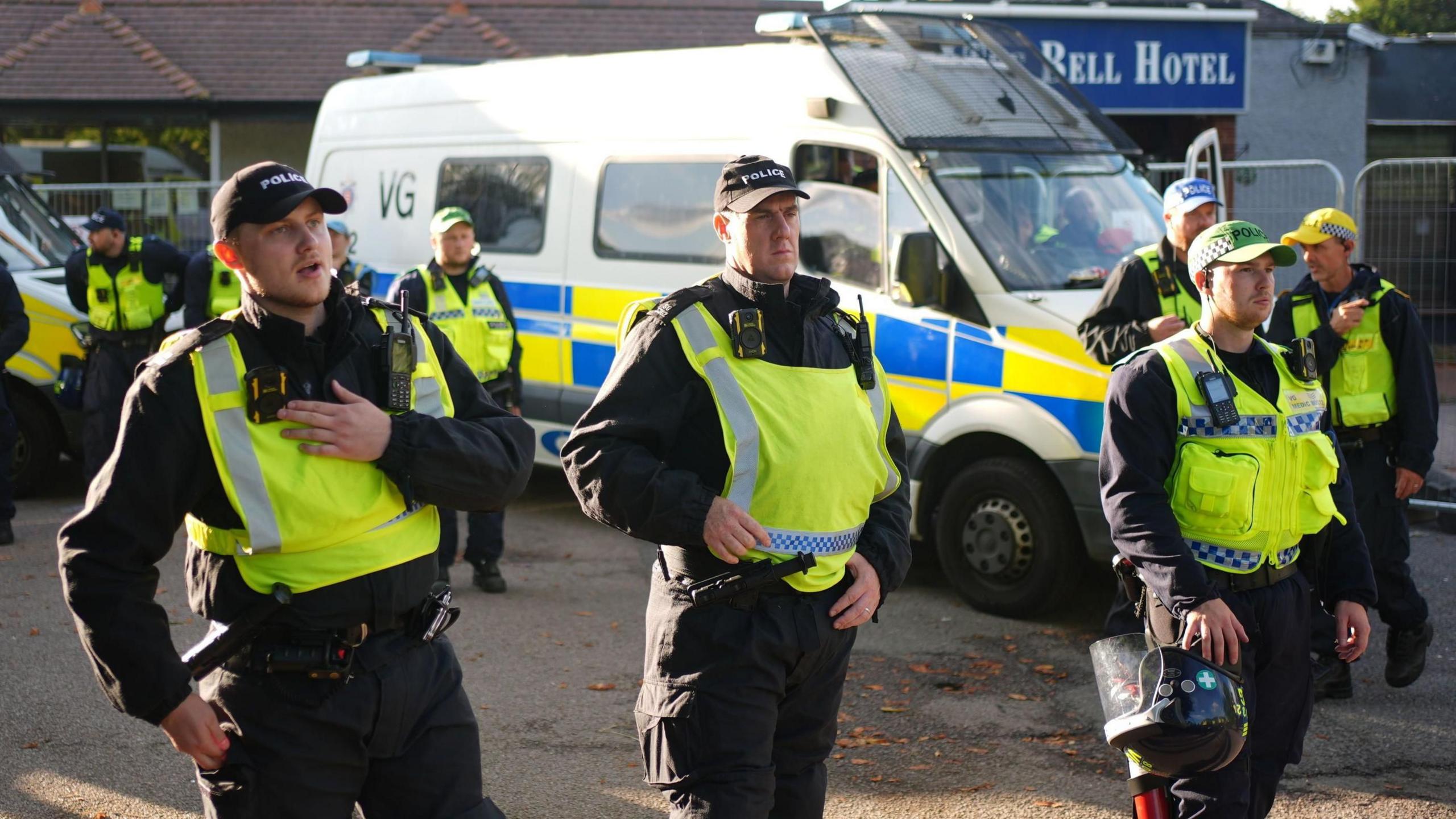Court rules asylum seekers must be moved from hotel
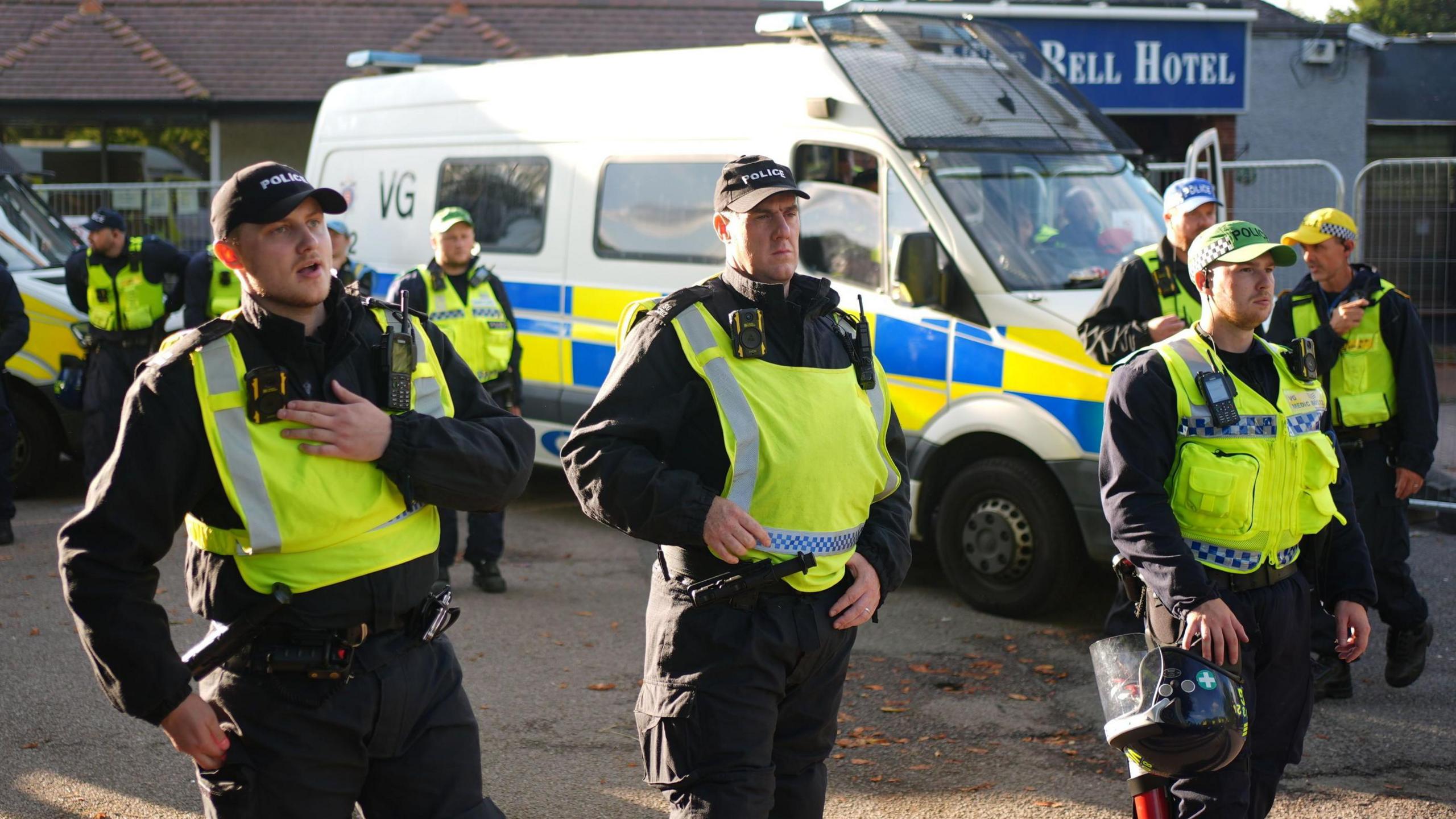
The Bell Hotel has been at the centre of intense protests and counter-protests over the summer
- Published
Asylum seekers are due to be removed from an Essex hotel after a council was granted a temporary High Court injunction blocking them from being housed there.
The injunction was sought by Epping Forest District Council to stop migrants being placed at The Bell Hotel in Epping, which is owned by Somani Hotels Limited.
Thousands of people have protested near the hotel in recent weeks after an asylum seeker living there was charged with sexually assaulting a 14-year-old girl in the town.
Mr Justice Eyre made his judgement after refusing an 11th-hour effort from Home Secretary Yvette Cooper to get the council's case dismissed.
Asylum seekers must be moved out of the hotel by 16:00 BST on 12 September, the judge ruled.
All 80 rooms at the hotel are seemingly occupied and, as of last month, it was home to about 140 men.
The Home Office had warned the decision would "substantially impact" its ability to house asylum seekers in hotels across the UK.
Footage from 17 July showed projectiles being thrown towards police officers
Protests staged outside The Bell Hotel have been attended by both people against its use for asylum seekers and those in support of migrant rights.
But Conservative council leader Chris Whitbread said the repeated demonstrations were escalating tensions in the area and risked causing "irreparable harm".
Reacting to the court ruling, he added: "The last few weeks have placed an intolerable strain on our community but today we have some great news.
"We have seen the protests that started off quite violently become peaceful protests, run by the people of Epping Forest.
"What I call upon the residents tonight is if they decide to go outside The Bell Hotel, don't protest, don't over-celebrate. This is the beginning. It is not the end."
A small crowd had gathered outside the hotel on Tuesday evening.
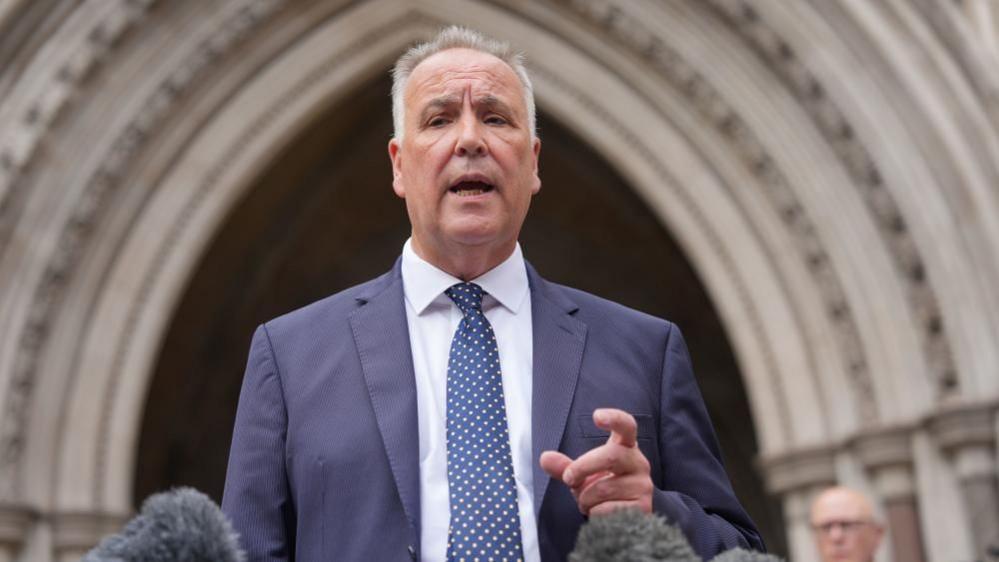
Chris Whitbread said the court victory showed "the government cannot ignore planning rules, just like no-one else can ignore planning rules"
Sixteen people have been charged with offences relating to disturbances during several protests, which Essex Police said became violent on occasion.
Representing the council, Philip Coppel KC agreed some protests "have unfortunately been attended by violence and disorder".
He said Somani Hotels "did not advise or notify the local planning authority" to seek its views on the use of the site which, he argued, was no longer a hotel in the usual sense.
He told the court it was "no more a hotel than a borstal [was] to a young offender".
Lawyers for the hotel and home secretary confirmed in court they wished to appeal against the injunction before a full hearing was listed in the autumn.
It followed a failed last-minute attempt by the Home Office to get the case dismissed.
Edward Brown KC, for the government, said any injunction could lead to other councils making similar applications.
"That would aggravate the pressures on the asylum estate," he added.
'Sidestepped scrutiny'
The council's win comes three years after a string of judgements in similar cases in which judges refused to intervene.
However, Epping Forest told the court last Friday that its case was different because use of the hotel had become a public safety risk, as well as a breach of planning law.
In his judgement Mr Justice Eyre said: "Although the defendant's [Somani Hotels Limited] actions were not flagrant or surreptitious they were deliberate.
"The defendant acted in good faith but chose to take its stand on the position that there was no material change of use.
"The defendant did so in the knowledge the claimant, as local planning authority, took a different view and believed that permission was necessary.
"It thereby sidestepped the public scrutiny and explanation which would otherwise have taken place if an application for planning permission or for a certificate of lawful use had been made."

A small crowd gathered outside The Bell Hotel in the evening following the High Court judgement
Imram Hussain, from the Refugee Council, said: "We think asylum seekers should not be in hotels - there are cheaper, better ways of supporting people and we think the government should end the use of hotels as fast as it can."
He said such migrants should be in "dispersal accommodation around the country", as it was more cost-effective and it wanted the government to "work with local authorities to go back to that kind of system and not use hotels".
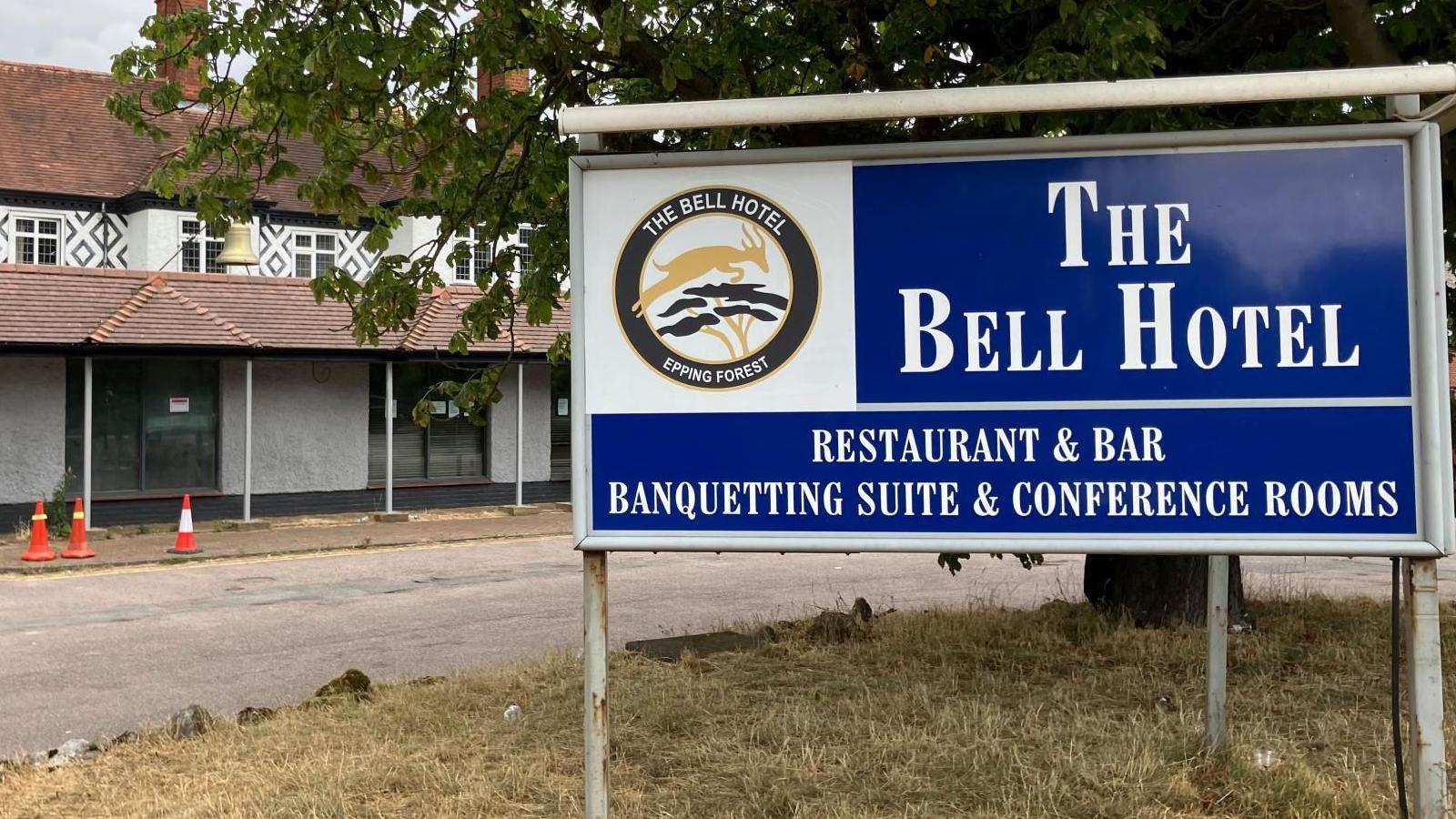
Epping Forest District Council applied for the injunction on 12 August
Reform UK leader Nigel Farage welcomed the ruling and said: "This community stood up bravely, despite being slandered as far right, and have won."
His deputy leader, Richard Tice, said his party would look at pursuing similar cases for hotels within the 10 council areas it controlled, which included both North and West Northamptonshire councils, Doncaster, and Kent and Staffordshire county councils.
Angela Eagle, Border Security Minister, said: "This government inherited a broken asylum system; at the peak there were over 400 hotels open.
"We will continue working with local authorities and communities to address legitimate concerns. Our work continues to close all asylum hotels by the end of this Parliament.
"We will carefully consider this judgement."
Conservative party leader Kemi Badenoch, MP for the nearby constituency of North West Essex, said Epping was "one of many towns struggling" with asylum hotels.
She added: "I do have a plan - bring back a proper deterrent and remove all illegal arrivals immediately."
"I don't know where the government will find to put them next," one local woman told the BBC.
Protests began outside The Bell after 41-year-old Hadush Kebatu, from Ethiopia, was charged with sexual assault, harassment and inciting a girl to engage in sexual activity.
He denied the offences and remained in custody ahead of a two-day trial, due to begin next Tuesday.
A second man, living at the same hotel, Mohammed Sharwarq, 32, a Syrian national, has been charged with two counts of common assault and four of assault by beating - concerning four complainants.
Following a hearing before magistrates in Chelmsford, he was remanded into custody.
The BBC understands the offences he is charged with are alleged to have taken place within the hotel.
- Published18 August
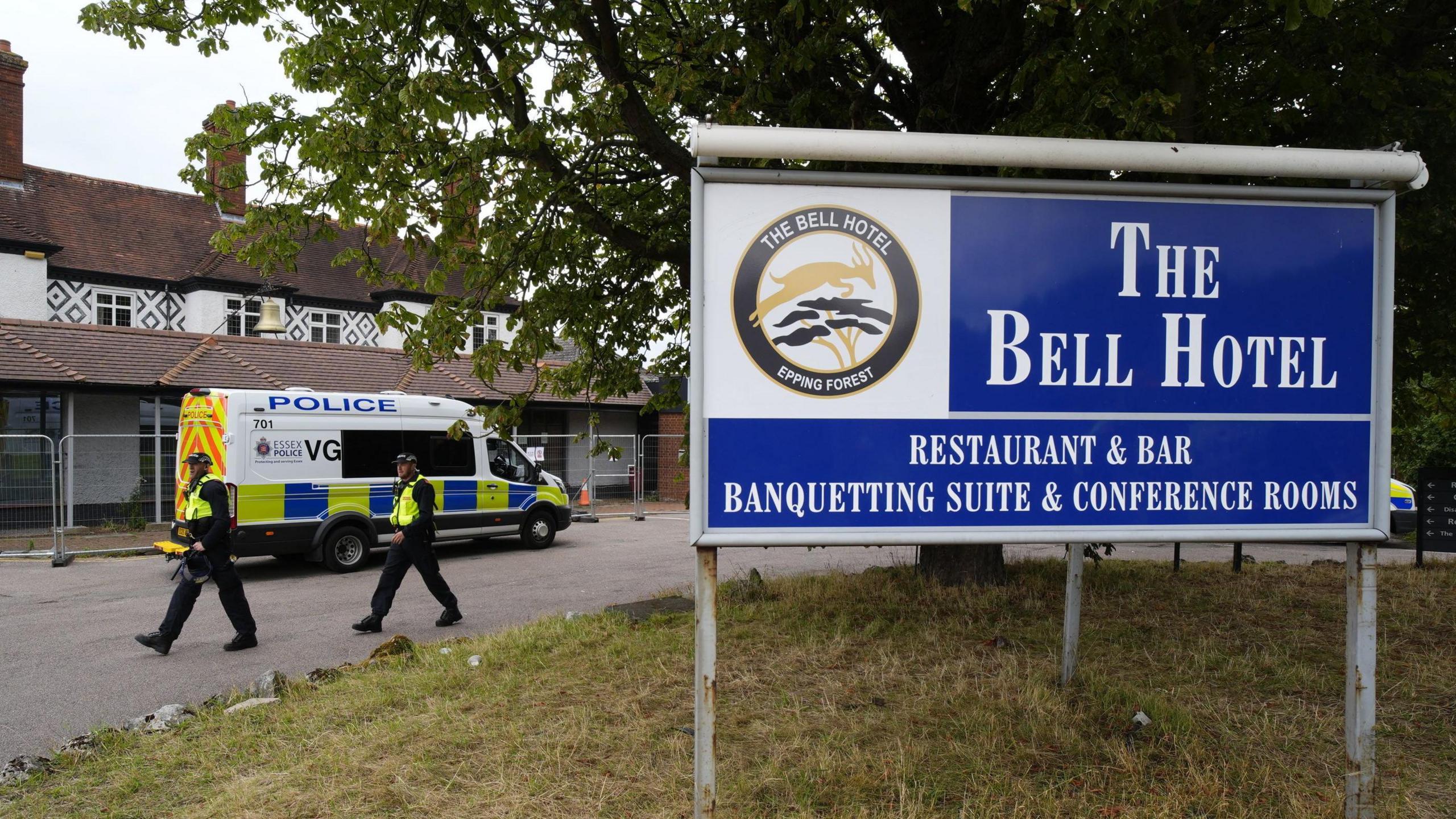
- Published16 August
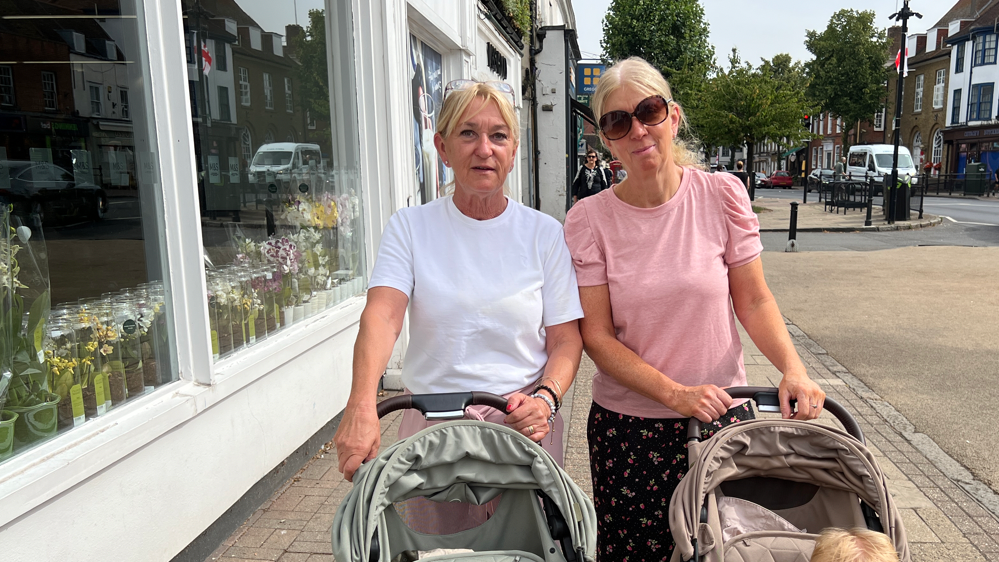
- Published9 August

- Published15 August
